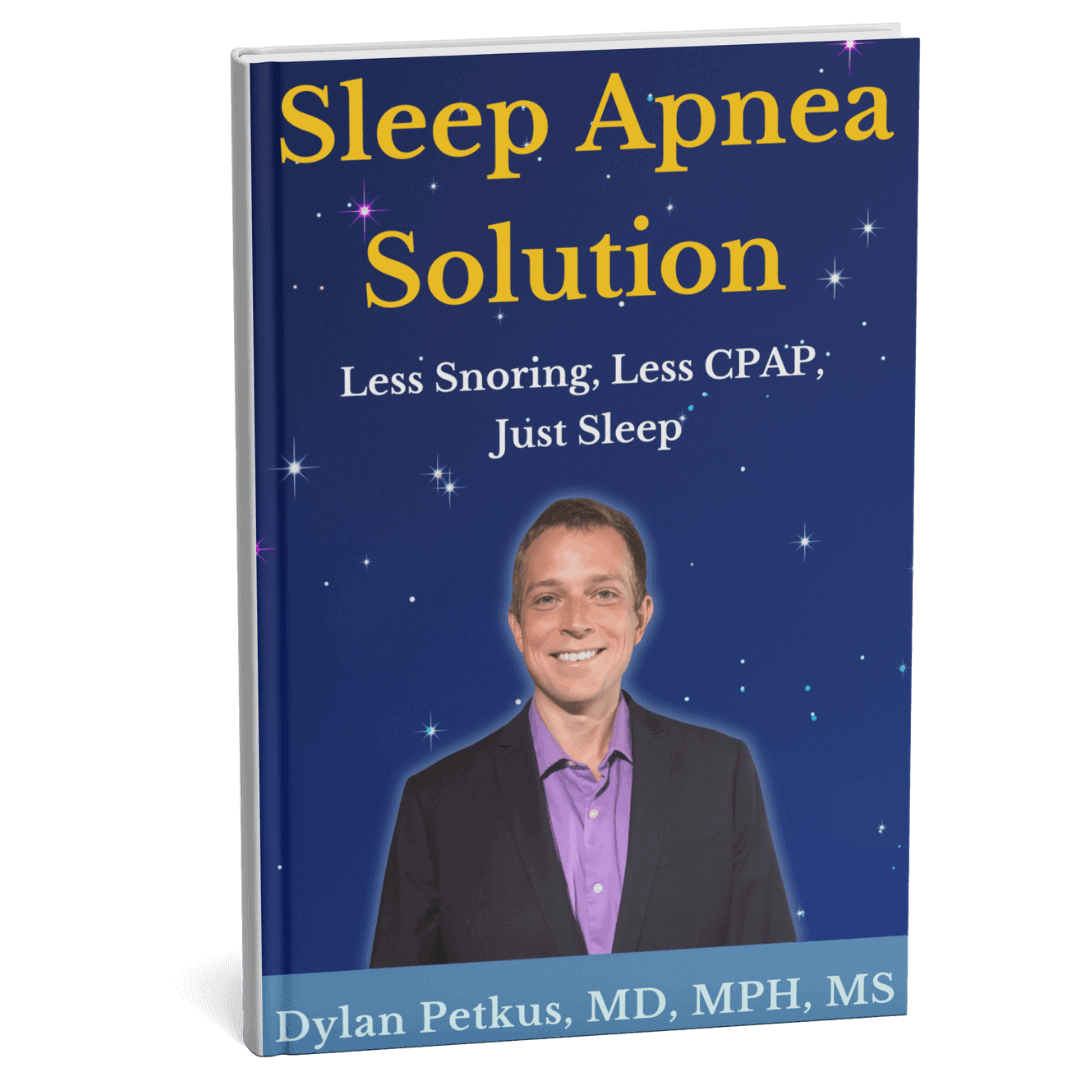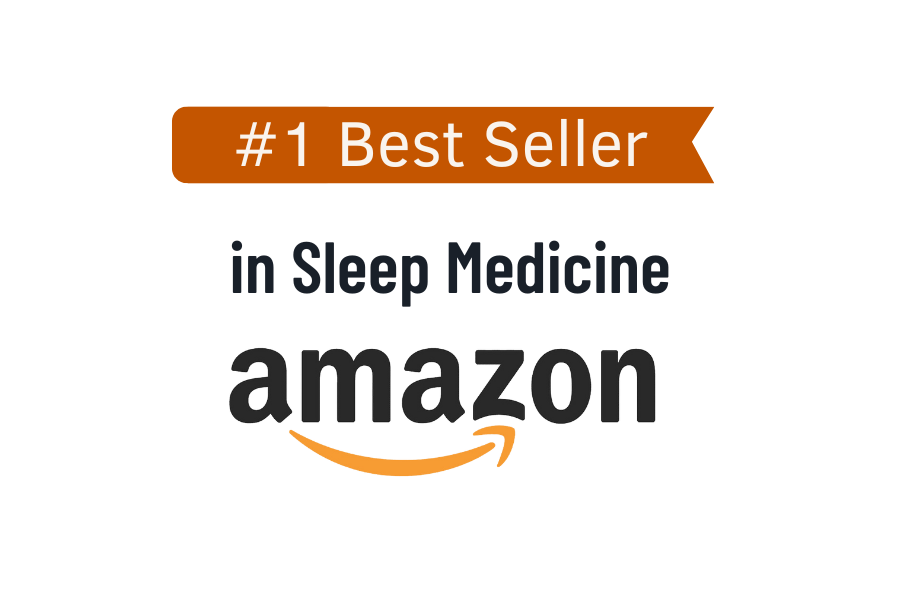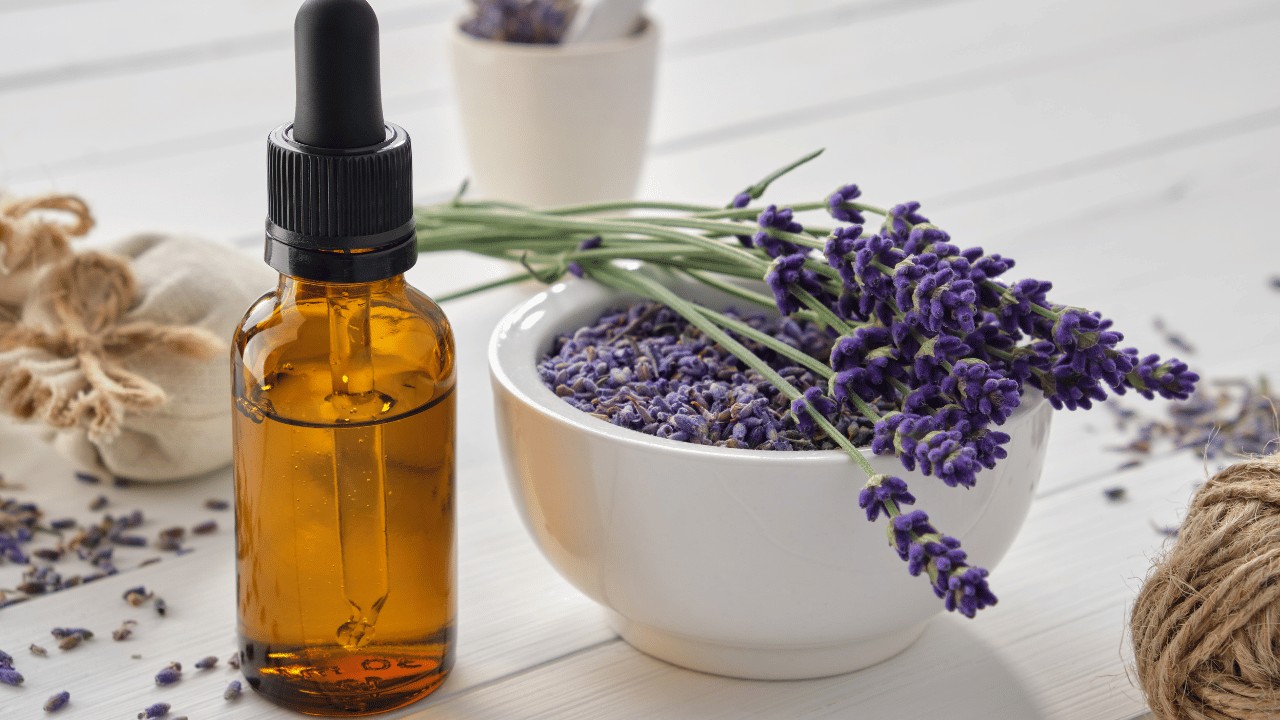
Lavender is a well-known herbal compound often used in sleep apnea supplements. This natural, plant-derived ingredient is also found in teas, sleep sprays, oils, and creams and is purported to help with restfulness, stress relief, and preparing for a healthy night of sleep.
While there is no suggestion that lavender essential oil products replace medical advice or can act as a cure, there is plenty of anecdotal and clinical evidence that lavender is widely safe and can evoke a sense of relaxation, especially for sleep apnea sufferers who find that bedtime is associated with anxiety and stress.
In this post, we’ll explore the uses of essential oils and herbal teas that sleep apnea as some of the natural sleep aids for sleep apnea that you may find beneficial for your bedtime routine.
Sleep Apnea and Essential Oils
While sleep apnea is a widespread condition, it can also have ongoing ramifications, where intermittent pauses in breathing and the inability to wake feeling rested and energetic can make everyday tasks challenging. Common symptoms include fatigue and sustained grogginess, problems concentrating and focusing, disruptions to sleep due to snoring and frequent waking, and even more profound complications, particularly for sleep apnea sufferers with underlying cardiac health conditions.
Essential oils are not cited as a way to treat or cure sleep apnea, but they can potentially be used as part of a holistic approach, where proactive and conscious decisions to promote healthy nighttime breathing can aid relaxation.
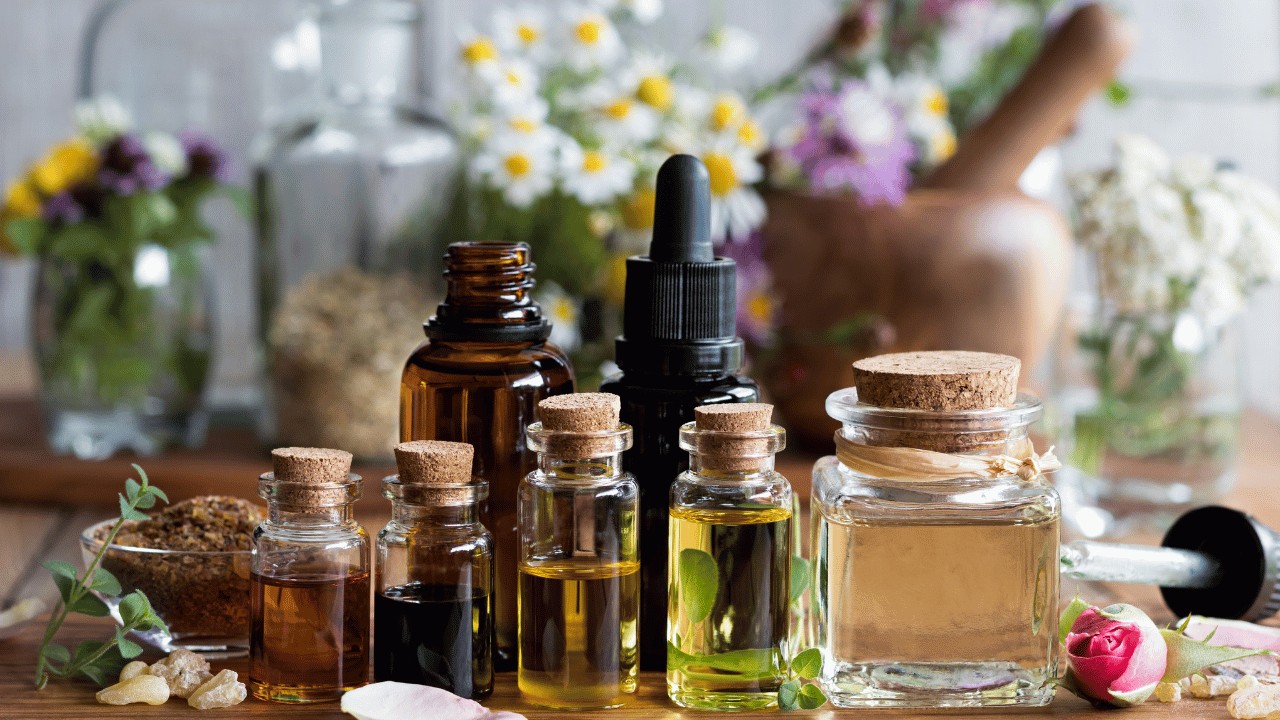
Common Essential Oils Thought to Have Sleep Benefits
There are countless commercial products, essential oils, creams, bath foams, and teas sold as sleep aids, many of which contain essential oils such as:
- Lavender oil
- Eucalyptus oil
- Peppermint oil
Each has varied applications and known benefits, but it is important to remember that there is no conclusive, wide-sweeping clinical research to quantify the advantages or unequivocally state that these essential oils are a key element in your sleep apnea toolbox. However, some studies note that lavender can, for example, provide a non-sedative calming impact and, as a safe and non-harmful ingredient, can be used in controlled amounts to help with the management of stress and anxiety disorders.
Therefore, a lavender essential oil product may act as one aspect of a sleep apnea strategy for sufferers experiencing stress and anxiety by helping to ensure they feel relaxed at bedtime.
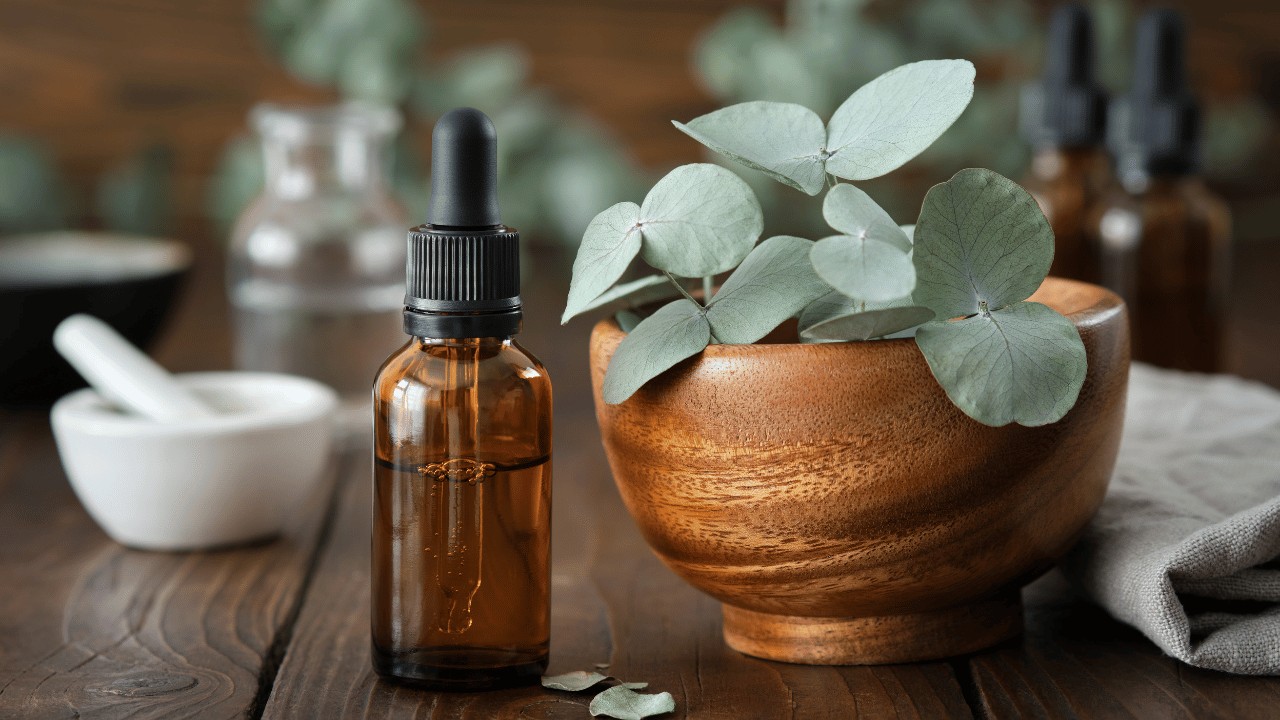
How to Use Essential Oils to Enhance Natural Sleep
There are many essential oils on the market, and while the majority are safe and low-concentration, it’s also wise to be conscious of different forms and applications. Topical essential oils tend to come in full-strength concentrates, which can be harsh and irritating when applied directly to the skin. Therefore, diluting oils in the bath or using a skin-friendly oil like coconut oil as a base is preferable, especially if you have sensitive skin.
Diffusers that emit essential oils into the air are also widely available. Still, it’s important to check the concentrations and usage instructions as higher concentrates could potentially be harmful or cause further sleep disturbances.
If you’re new to essential oils, never try to add them to a tea–the oil-based formula can contribute to gastrointestinal issues. It’s important to use products in the format provided and read the guidance beforehand. The best advice is to speak with your physician or practitioner if you’d like to introduce essential oils to boost natural breathing at night and have any concerns about whether they will be safe in conjunction with other medications you may be using.
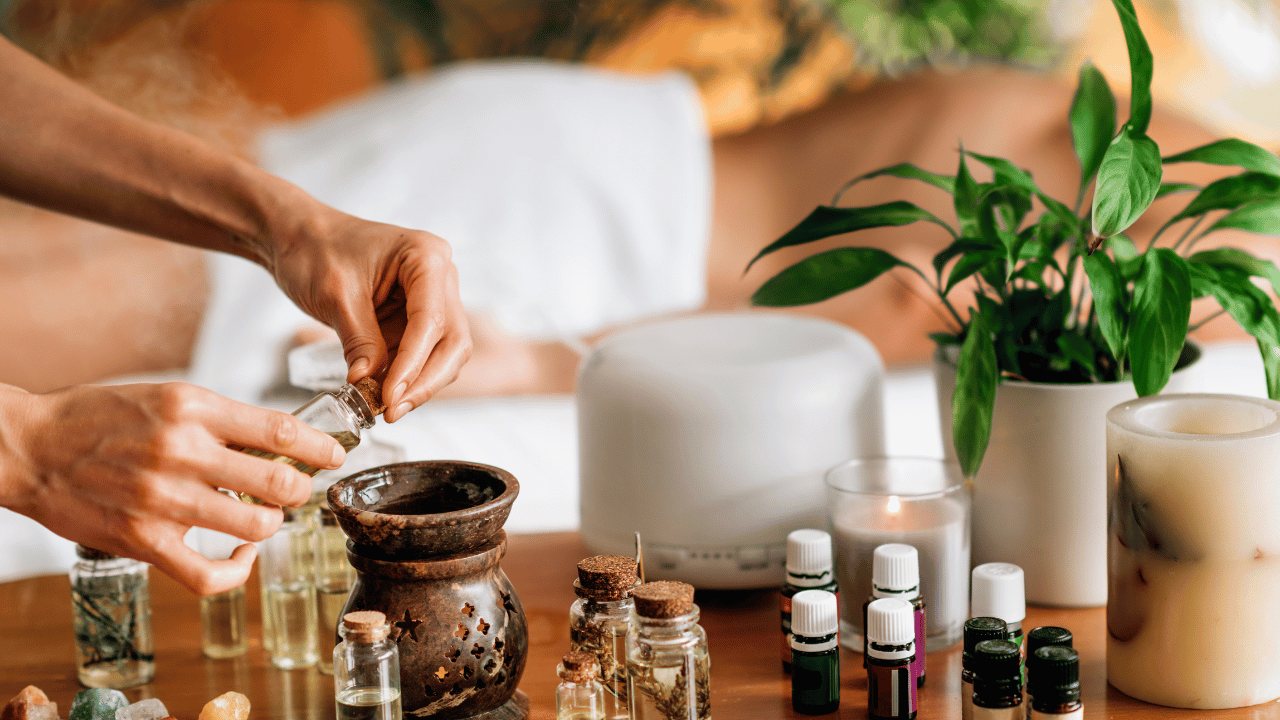
Incorporating Lavender Oil Into Your Sleep Apnea Nighttime Routine
There’s little doubt that lavender can be a great plant-based oil, but depending on your preferences, you might find that a gentle, relaxing lavender and chamomile tea or lavender-infused bath foam or shower gel produces the desired effect without any possible downsides.
Regardless, a more conscious focus on health, wellbeing, and sleep hygiene is a great way to proactively address sleep apnea. Alongside essential oils, you might opt to take supplements or increase your dietary intake of key vitamins that assist with inflammation reductions, restful sleep, and stress relief.
Further information is available through Sleep Apnea Solution, the latest publication from reputable sleep apnea specialist Dr. Dylan Petkus. It explores how nutrition, breathing techniques, and sleep hygiene can work in harmony to help overcome sleep apnea!


